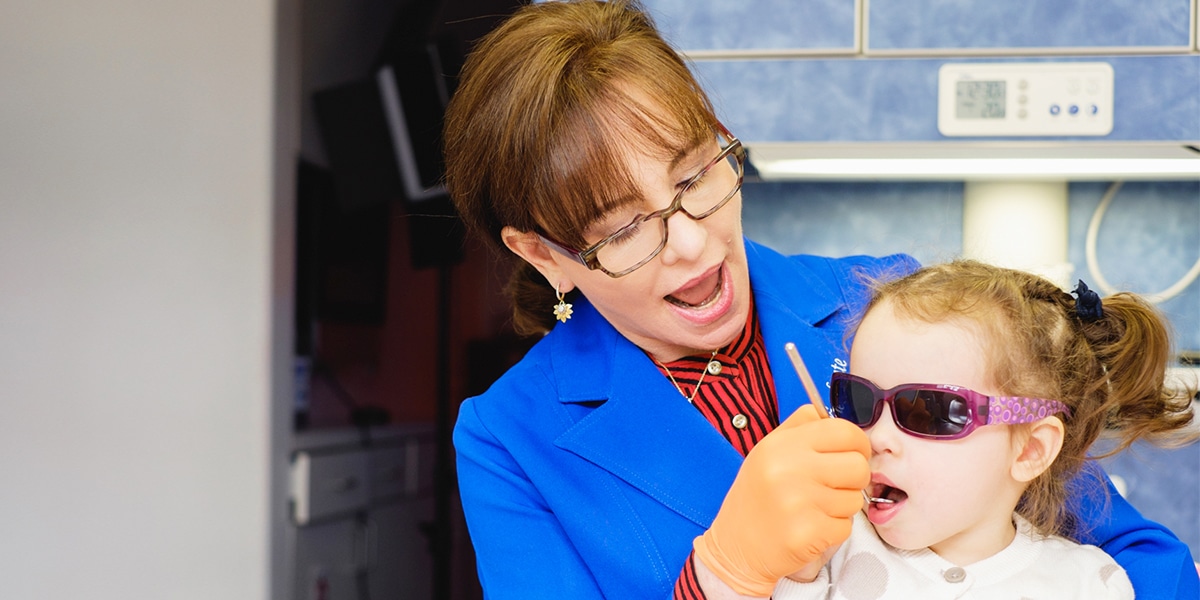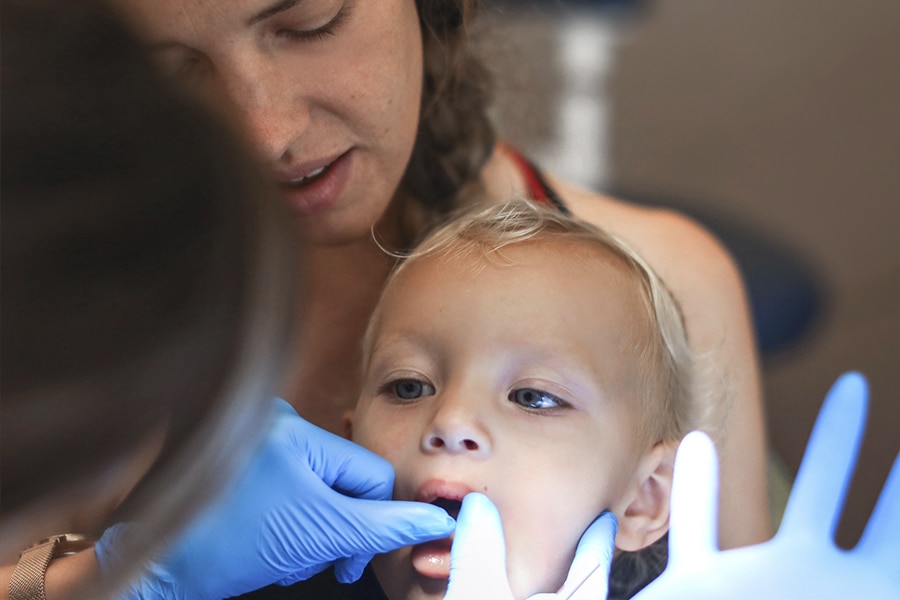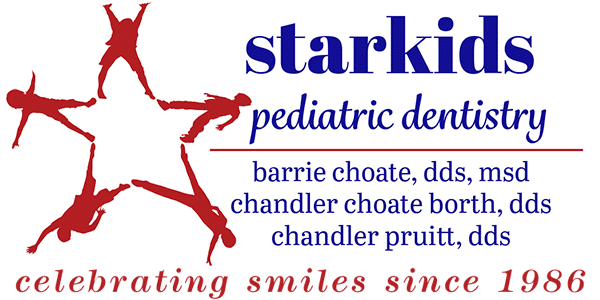Early Dental Care

We Offer Complimentary First Time Visits for Children Under 24 Months
The American Academy of Pediatrics and the Academy of Pediatric Dentistry both recommend establishing a “dental home” for your child by one year of age. We want to encourage this habit by offering a complimentary first-time visit for all children under the age of twenty four months who we call our “Lil’ Sparklers.”
First Visit Details
It is true! Your baby should be scheduled for their first dental visit within six (6) months of the eruption of their first tooth. For some this visit coincides with their first birthday, for others it may be closer to fifteen or eighteen months.
The following will be completed at this appointment:
Our hygienist will:
- Review the medical and dental history form
- Clean, polish, and floss teeth
- Demonstrate how to care for your child’s teeth at home
- Discuss nutrition, healthy snacks and beverages
- Radiographs (x-rays) are taken only if necessary
Dr. Choate or Dr. Borth will:
- Review the medical and dental history form
- Complete a thorough oral examination
- Check for decay
- Complete caries risk assessment
- Apply fluoride varnish
- Provide age appropriate anticipatory guidance to include tooth development, oral hygiene instructions, nutritional counseling, and answer any other questions you may have concerning your child’s oral health
We encourage parents to accompany their child during their visit. This gives you an opportunity to see us working with your child and allows us to discuss dental findings and treatment needs directly with you.
Lap to Lap or Knee-to-Knee Exam
For most infants and toddlers, the first few dental cleanings and oral examinations may be safely and conveniently performed in a “knee-to-knee” position, where the child sits in the parent’s lap and leans their head back into the lap of the dentist or dental hygienist.
Typically at age three, when we can better communicate with your child, we graduate them into our “big boy” or “big girl” dental chair.

Importance and Care of Primary Teeth (Baby Teeth)
Baby teeth, also called primary teeth, are shed, but they are still very important for a number of reasons. Children need strong, healthy baby teeth in order to chew food properly, to pronounce words correctly, and to maintain space in the jaw for the permanent teeth. That is why it is important to take good care of the primary teeth by keeping them clean and healthy.
Even before the first tooth erupts, your child’s gums should be wiped gently with a wet cloth or gauze after every feeding. At the appearance of the first tooth, begin brushing your child’s teeth with smear or rice size amount of fluoridated toothpaste until age 3.
Preventing Decay
Primary teeth, if not kept clean and healthy, can develop decay. This decay can lead to infection, which can damage permanent teeth. Tooth decay in infants and young children occurs when the teeth undergo frequent and extended exposure to liquids or food items containing sugar or acid. To keep your child’s teeth cavity free and avoid oral pain, do not allow your child to fall asleep with a bottle containing anything other than water. Milk, formula, and juice, when given to a child right before they fall asleep, can remain on the teeth and in the mouth and cause tooth decay. If your child needs a pacifier between feedings or at bedtime, give them a clean pacifier. Do not give your child a pacifier dipped in honey or sugar.

